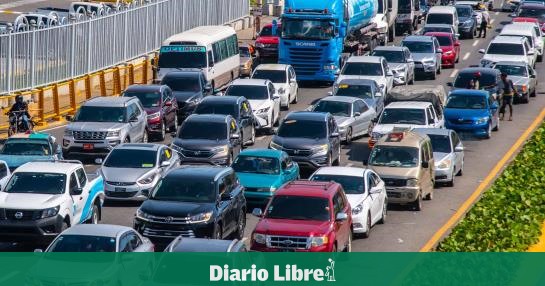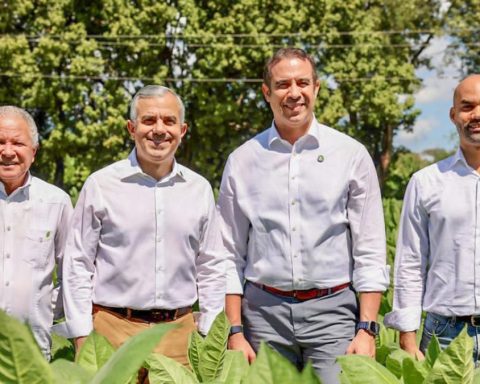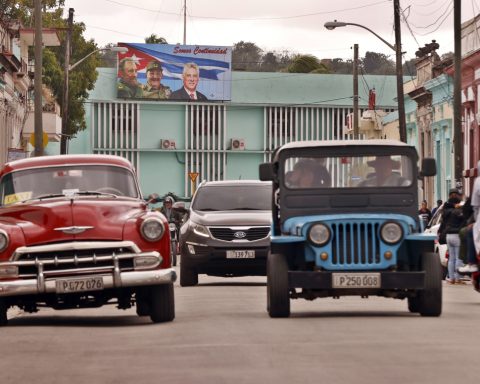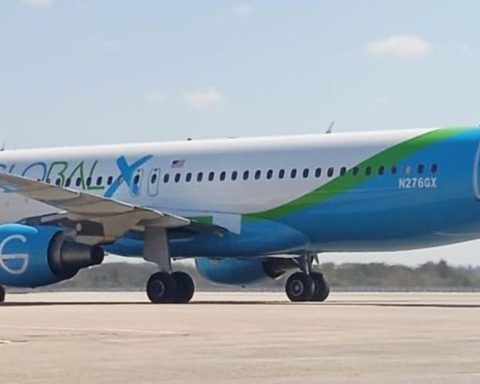The Dominican Republic has 2.2 million vehicles more than those that were counted 10 years ago, concentrating the National District, Santo Domingo, Santiago and La Vega more than half of the vehicle fleetwhen taking into account the fiscal domicile of the taxpayers.
To the universe of drivers, the National Institute of Traffic and Land Transport (Intrant) plans to control with a new system of points in their driver’s licenses that will be in line with their traffic violations.
According to the data compiled by the General Directorate of Internal Taxes (DGII), 77.3% of the owners of vehicles that are natural persons are men and 22.7% women, percentages that have not had a substantial variation in the last 10 years. The DGII does not specify the reasons in its statistical report.
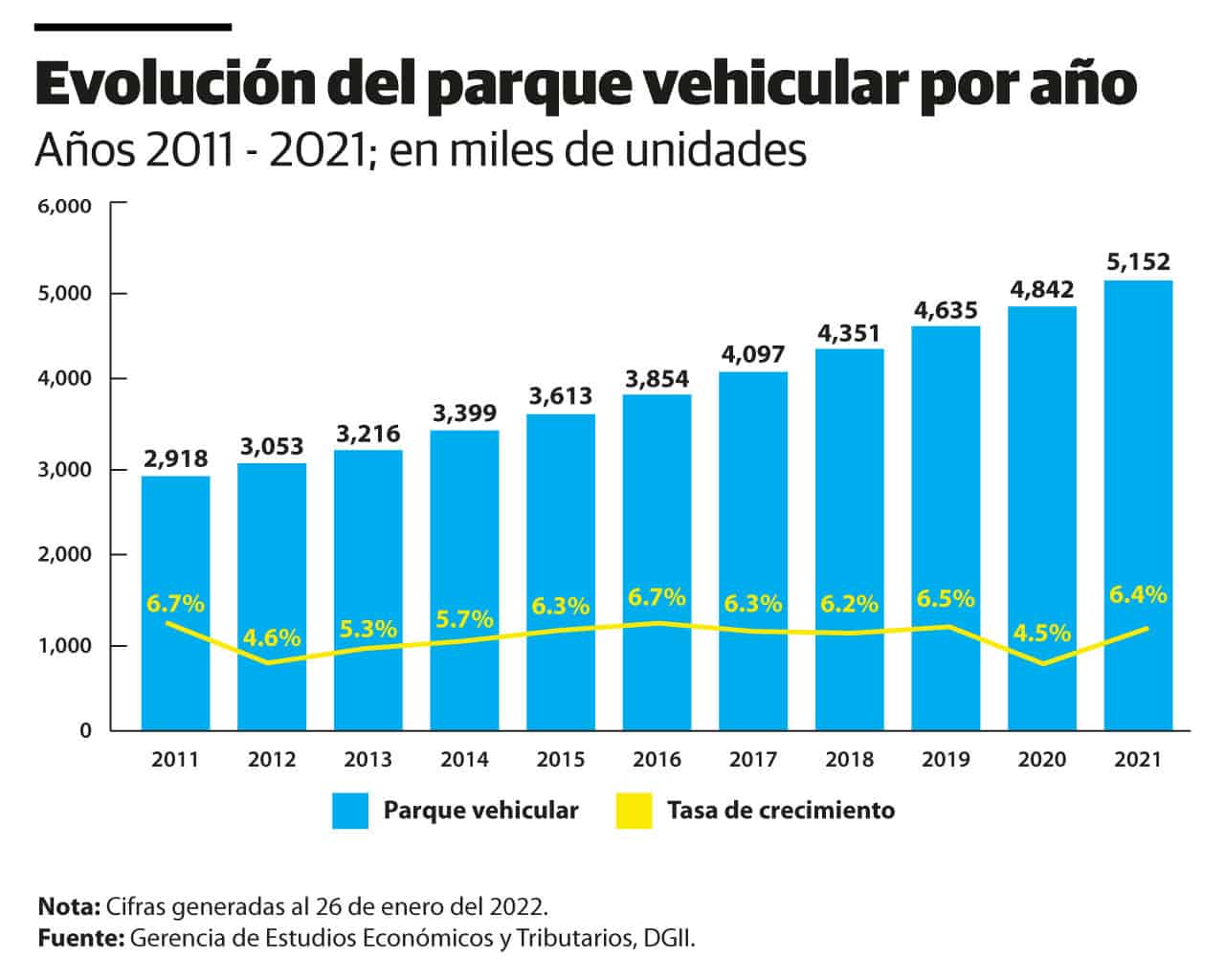
How many entered and what is the most used vehicle?
As of December 31, 2021, the registered vehicle fleet amounted to 5,152,448 units
310,081vehicles
of new entrants were recorded in 2021, compared to 2020
55.8%they are motorcycles of the vehicle fleet
20.3%corresponds to automobiles
11.0%to yipetas
According to data from the General Directorate of Traffic Safety and Land Transportation (Digesett), in 2021, 1,522,201 contraventions were issued, more than double those registered in 2020, when 614,808 were reported in a year that was characterized by months of strict confinement. and curfews mostly at night, due to the COVID-19 pandemic.
In 2019, a pre-pandemic year, traffic officers imposed 1,003,852 fines.
Among the most common infractions committed last year are not wearing a protective helmet when riding a motorcycle, disobeying the red light and traveling without insurance or without a license or with one of these two expired documents.
The Intrant formed last week an inter-institutional work table for the implementation of the project that seeks to implement the system of driver’s license for points.
The system will grant the driver a balance of 20 points on his driver’s license, and as you commit traffic violations, these points will be reduced until they reach zero. At that time, the suspension of your license will be processed.
For violating the red light of a traffic light, for example, the driver will lose five points, in addition to the fine that he must pay.
From the Intrant explained to Free Journal that a person can lose all the points, but can recover them if in two years they do not commit violations of the law and half of the points they lost are added. Another way is by taking a road awareness and reeducation course.
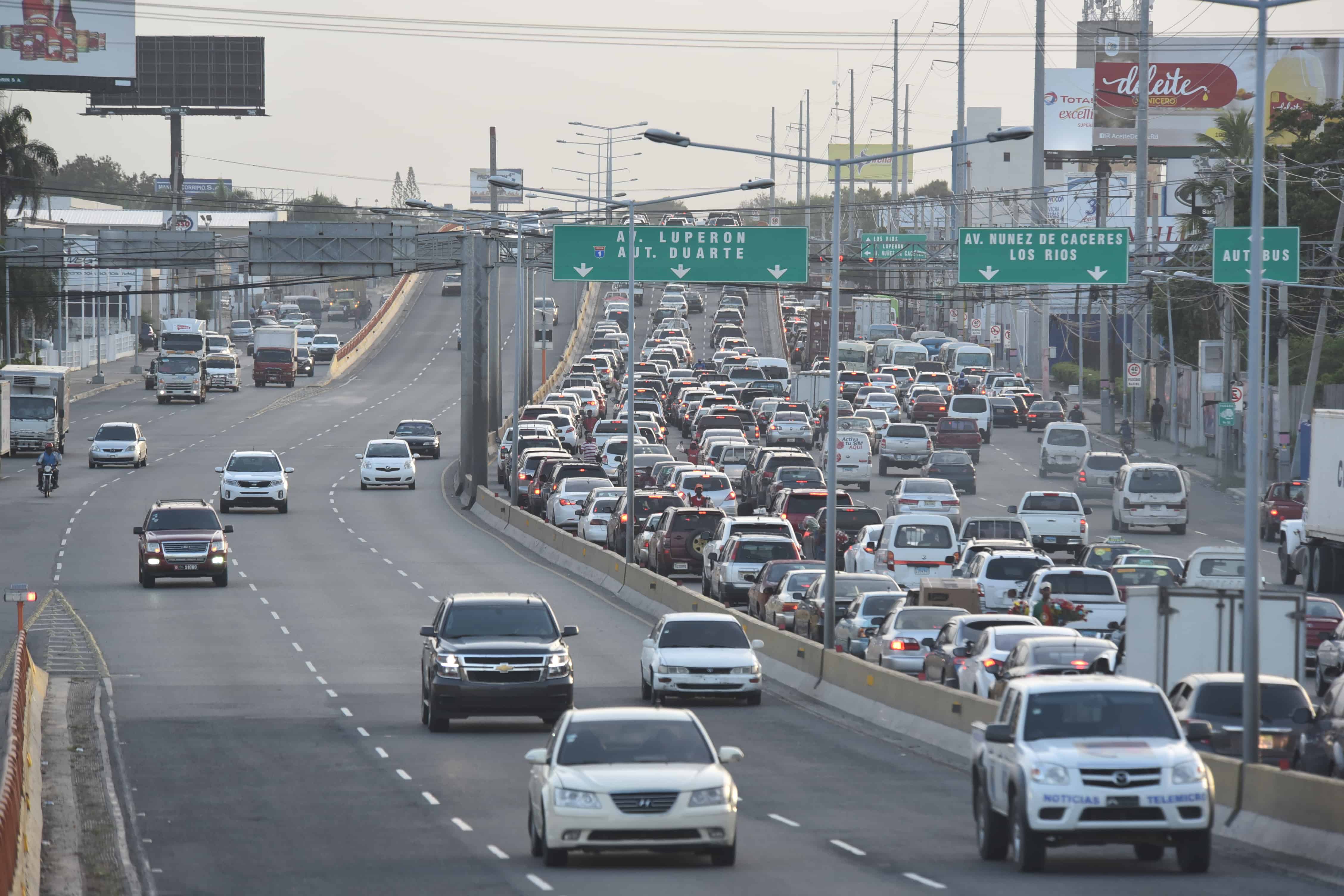
Motorcycles continue to be the means of transport most accessed by the population in a country of almost 11 million inhabitants. In the last 10 years they have remained leading the vehicle fleet. When the DGII registered 1,497,659 in 2011, in 2021 they doubled to 2,874,590.
In second place of growth are automobiles. In 2011 there were 678,964 and in 2021 they doubled to 1,045,414.
Third place goes to SUVs, which went from 275,661 in 2011 to 569,102 in 2021.
Of the total number of cars registered as of 2021, 31.6% belong to the National District, 25.9% to Santo Domingo, 11.6% to Santiago and the remaining 30.9% to the other provinces, according to the taxpayer’s tax domicile.
Regarding the SUVs, 26.5% are in the National District, 20.8% in Santo Domingo, 13.6% in Santiago and the remaining 39.1% in the other provinces.
For November 2015, it was estimated using a analysis of the SoluVial RD group that those who traveled daily through the corridors of 27 de Febrero and John F. Kennedy-Duarte avenues in the Dominican capital could be spending up to an additional 6,000 pesos on fuel due to the traffic jams that affect these roads during peak traffic hours.
By the time that information was released there were fewer vehicles and the gallon of premium gasoline cost 191.20 pesos and the regular one 173.70 pesos. Currently, the premium one costs 293.60 pesos and the regular one costs 274.50.
